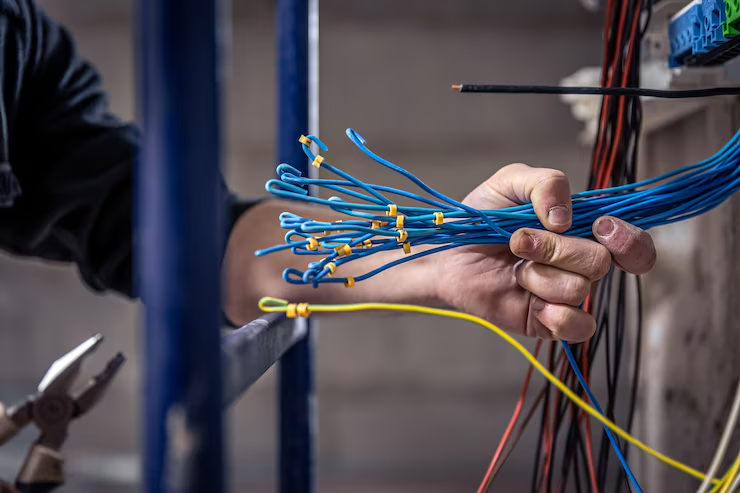Introduction: Why Is Tyler Technologies Charging Your Card?
Have you spotted a charge from Tyler Technologies Charge on Credit Card and wondered why it’s there? You’re not alone. Thousands of users across the U.S. find such charges and aren’t sure what they mean. In most cases, it’s not fraud—it’s related to a recent government service payment.
This guide breaks down exactly why Tyler Technologies appears on your billing statement, how to verify legitimate transactions, and what steps to take if something looks suspicious.
What Is Tyler Technologies and Why Is It Charging You?
Tyler Technologies is a well-known American software company that provides digital infrastructure to local, state, and federal government agencies. Their services power platforms that manage:
- Property tax billing
- Utility billing
- Court fines and citations
- Business permits and licensing
- Public education system payments
When you pay a city fine, renew a license, or handle municipal services online, your transaction may be routed through a platform built and maintained by Tyler Technologies. As a result, the name “Tyler Technologies” or “Tyler Tech” may show up on your credit or debit card statement.
Even if you didn’t visit their website directly, your payment was processed by them behind the scenes for a public entity.
Top Reasons Why You’re Seeing a Tyler Technologies Charge
1. Payment for a Government Service
If you recently made an online payment to a city, county, or state agency, it’s highly likely that it was processed via Tyler Technologies. This includes payments for:
- Property taxes
- Water, gas, or electricity bills
- Traffic tickets or court fines
- Public school or university fees
- Permit or license renewals
Check your email or online banking for confirmation receipts of recent transactions that match the amount.
2. Additional Processing Fees
Tyler Technologies may apply a processing or convenience fee on top of your original payment. This is common when using a credit card. The fee typically includes:
- A percentage-based service fee (e.g., 3.45%)
- A flat fee (e.g., $0.28)
- Minimum total fee (e.g., $1.67)
These are clearly stated before you confirm the transaction but may appear separately on your statement, creating confusion.
How to Confirm the Legitimacy of a Tyler Technologies Charge
If you’re unsure about the charge, follow these steps to verify:
1. Cross-Check Recent Transactions
Think about any payments made to public agencies over the past 7–30 days. Even small, routine charges like parking fines or school-related fees could be the cause.
2. Look for Clues in the Billing Description
On your credit card or bank statement, the transaction may appear under names such as:
- TYLER TECHNOLOGIES
- TYLER TECH
- GOV*TYLERTECH
Match the amount to a recent payment you’ve made.
3. Contact the Public Agency You Paid
Call the organization (e.g., city office, county court, school district) and ask if Tyler Technologies handles their payment processing.
4. Call or Email Tyler Technologies Directly
If you’re still uncertain, contact the company for support:
- Phone: 972-713-3700
- Email: info@tylertech.com
- Website: www.tylertech.com
What to Do If You Think the Charge Is Fraudulent
In rare cases, the charge could be unauthorized. Take these steps immediately:
1. Contact Your Card Issuer
Call your credit card company or bank to report the transaction. They can block further charges and begin a fraud investigation.
2. Reach Out to Tyler Technologies
Let them know about the unrecognized charge. They may be able to trace the payment and tell you which government agency initiated it.
3. File a Dispute If Necessary
If neither your bank nor Tyler Technologies can confirm the transaction’s origin, request a chargeback or dispute through your bank’s customer service department.
Tips to Prevent Future Confusion Over Tyler Technologies Charges
1. Always Save Payment Confirmations
Whenever you make an online payment, save a screenshot or email confirmation. This helps track down the purpose of any unexpected charges.
2. Use E-Check Where Possible
Many agencies offer e-check (ACH) payments with no extra fees, unlike credit cards that often incur processing costs.
3. Set Up Bank or Card Alerts
Enable real-time alerts via SMS or email for all card transactions. You’ll get notified the moment a charge is made.
4. Understand Which Agencies Use Third-Party Payment Processors
Before making payments online, read the terms on the checkout page. It usually lists Tyler Technologies or other processors upfront.

Frequently Asked Questions (FAQs)
Q1: Why did Tyler Technologies charge me twice?
A: One charge may be for the actual payment, and the second for the service or processing fee. Review the breakdown of the charges.
Q2: Can I get a refund from Tyler Technologies?
A: Refunds are typically issued by the government agency, not Tyler Technologies. Contact the agency you paid for any disputes.
Q3: Is Tyler Technologies a scam?
A: No, Tyler Technologies is a legitimate, publicly traded company providing tech solutions for public sector entities across the U.S.
Q4: I never visited Tyler Technologies’ website—why was I charged?
A: Even if you didn’t visit their site, the agency you paid may use their system to handle payments.
Q5: How do I stop recurring charges from Tyler Technologies?
A: Contact the agency or utility provider to cancel any auto-pay settings that might be triggering regular payments.
Conclusion
A charge from Tyler Technologies on your credit card usually indicates a recent transaction with a government-related agency. Whether it’s property taxes, utility bills, court fees, or school expenses, these payments are often processed via their secure system.
To stay informed, keep records of your transactions, know which agencies use third-party processors, and don’t hesitate to verify a charge if something feels off. Clear communication with your bank and Tyler Technologies can resolve any confusion quickly.
By understanding the source of such charges, you protect yourself from fraud, reduce billing surprises, and gain confidence in managing your financial records.




